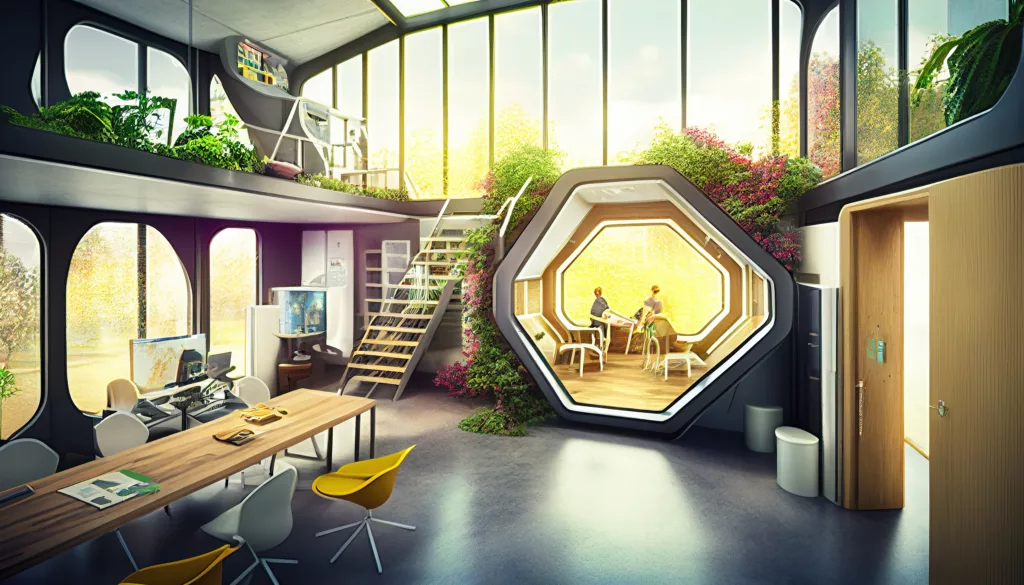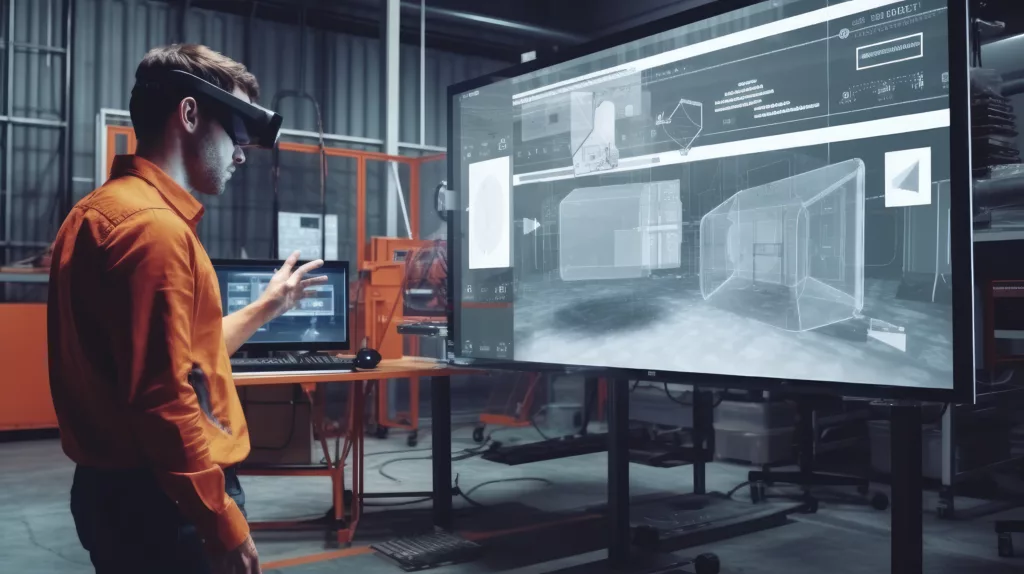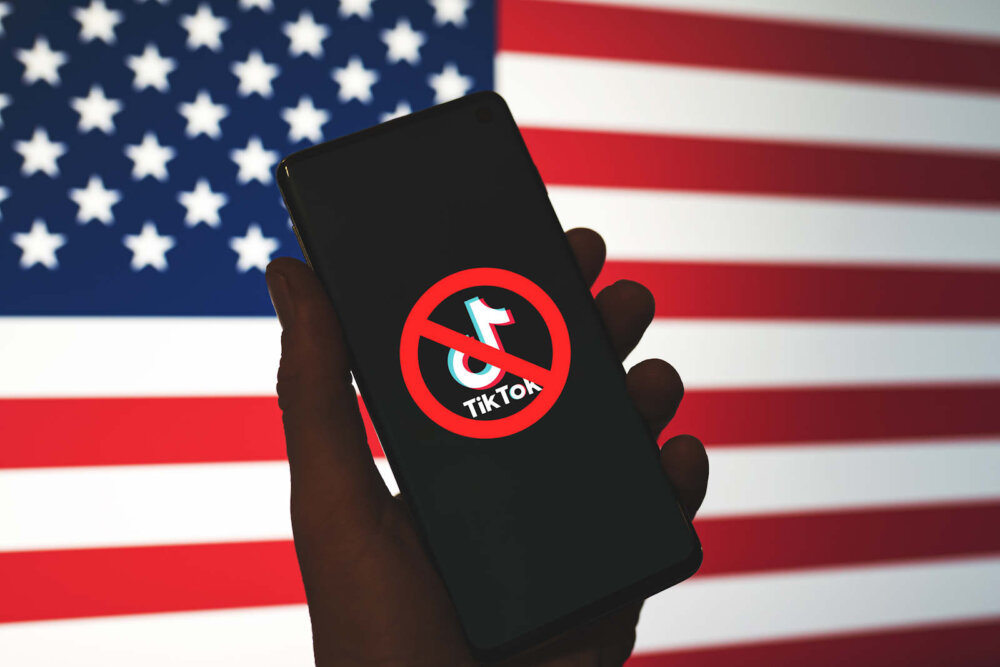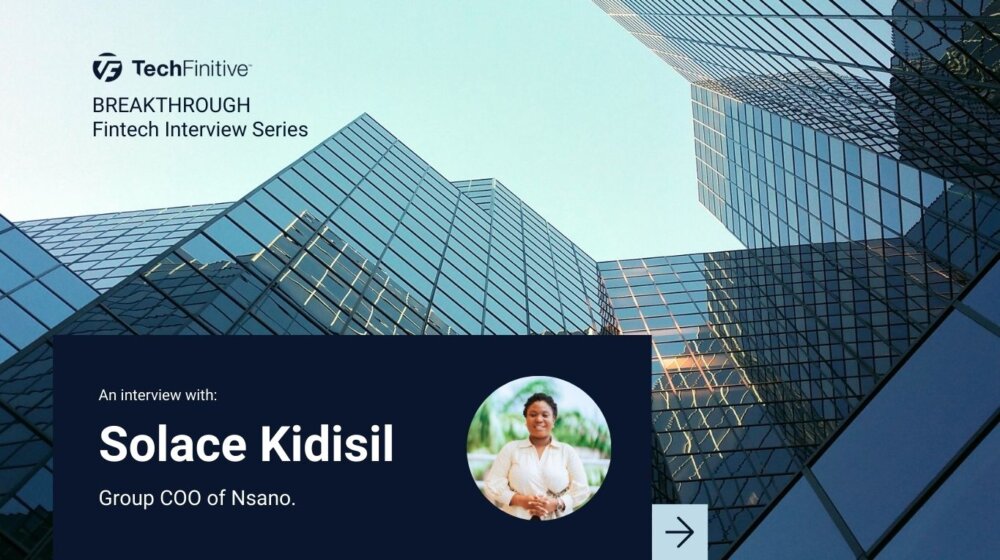
Future of work – what does it hold?
At TechFinitive we are constantly wondering what the future of work might look like. Not only does this healthy obsession feed our inquisitive nature but also, we suspect, is front of mind for the new generation of business and technology professionals breaking through the ranks.
In our search for answers, we decided to bombard business and technology thought leaders with our most burning questions. What technologies did they think might disrupt the workforce? How would office spaces change? What jobs might disappear?
This article is a compilation of our findings. Not just from conducting those interviews, but from additional research we’ve done to support our qualitative findings. Here’s what you may expect to find:
- What is the future of work?
- Future of work trends
- AI and the Future of Work
- How technology will change the Future of Work
- Future of Work Conferences
- Future of work research
For more on how we researched this article, read the methodology section at the bottom.
What is the future of work?
When businesses or professionals refer to the “future of work”, they are typically referring to how workforces and workspaces of the future will look like. It’s shorthand for a time in the not-so-distant future when economic, social and technological factors will have – combined or individually – altered what the experience of work looks like for a significant number of people.
Future of work trends
In our more than 20 interviews with technology and business leaders, we asked what they thought were the major factors influencing the future of work. Here are the major trends that surfaced from their responses:
- Generative AI
- Hybrid work & flexible work
- Compliance
- Sustainability
- Diversity, equity and inclusion (DEI)
Generative AI
The rapid expansion and adoption of applications powered by generative AI have accelerated the speed at which certain tasks will become automated. While this level of automation might result in new jobs being created, many are pointing out that repetitive, menial, entry-level jobs will most likely disappear.
Jimmy Lee, CEO of Nirovision, listed AI generative models as “one of the major factors that will influence the future of work“. Meanwhile, Jim Stroud, a thought leader within HR technology, pointed out in his interview that AI and automation had already revolutionised how HR recruitment gets done (interview to be published soon).
Hybrid work & flexible work
The Covid-19 pandemic changed the fabric of work, possibly, forever. There’s a rise in the number of people looking for remote or hybrid work opportunities and/or flexible employment that allows them to hold more than one job at the same time (often referred to as the “gig economy”).
At the same time, companies are quickly adapting to this new reality. Many are trying to create a truly global work environment that allows them to recruit the best talent regardless of region.
Simon Long, Digital Transformation Strategist at CBRE, highlighted in his interview that employees are “increasingly seeking flexible work arrangements, strong organisational cultures, continuous learning opportunities, and a focus on mental and physical well-being” before asking the question: “how can employers best adapt to these expectations to attract and retain talent?”
Compliance
With many leaders in the field of generative AI describing the technology as posing “profound risks to society“, the debate around tech regulation truly accelerated. While that debate will greatly shape how AI and automation, in particular, affect jobs, it’s not the only area where regulatory action will impact the future of work.
In fact, through the implementation of GDPR, with its strict controls over how data is used, stored, transferred and sold, the European Union has changed how businesses operate. Particularly in the digital economy. It has also paved the way for subsequent change worldwide, notably in the US, with many states now adopting similar data policies.
When it comes to compliance and the future of work, there’s more to consider. Governments and international organisations will likely deploy measures to help combat climate change and support a more sustainable economic development. This won’t just impact what jobs are created (or changed) but also what resources can be leveraged for economic growth – and the manner in which employees are treated.
It’s easy to talk about advanced technology changing how we work but it’s wider than that. For example, we’re used to laws and regulations in areas around data privacy but we can expect a lot more compliance related to climate change and ethical practices – and organisations will have to make changes, often enabled by technology, to hit these targets.
Future of work Interview with Tony Hallet, Managing Director, Collective Content
Sustainability
Perhaps never before in the history of human labour has ‘sustainability’ played such a central role in discussions around employment and economic growth. After decades of taking more from the planet than what gets put in, companies, governments and organisations around the world are now considering, more than ever, how to drive “sustainable growth” rather than “growth at any cost”.
Here’s what Lena Reinhard, Leadership Coach & Public Speaker, had to say in her interview:
Climate change will continue to pose a great threat. For corporations specifically, I expect that the increasing frequency of destructive weather events will continue to challenge them, from supply chain issues, to navigating impacts on their office locations and employees. The environmental impact of corporations and technology is huge, and as younger generations enter the workplace, many are already asking critical questions of employers regarding sustainable practices.
This shift has profound effects on the future of work. As Deepesh Banerji pointed out in his interview: “The need to address climate change is affecting the types of available jobs and the skills required for those jobs. This includes jobs in renewable energy, sustainable agriculture, and environmental engineering.”

It’s not just the type and availability of jobs that are changing, though. Sustainability is also a key factor in what offices will look like. From the materials used (and how they are sourced) to occupation rates, from air quality to accessibility, office spaces of the future will account for sustainability in ways that will fundamentally make them different from how we experience them today.
Here’s how Simon Long put it in his interview: “Offices used to run full steam, five days a week, now they often stand underutilised on Mondays and Fridays. How do we weave better environmental and occupational efficiency into our workplaces?”
Diversity, equity and inclusion (DEI)
Labour rights alongside a renewed focus on diversity, equity and inclusion efforts will likely impact what the future of work looks like. New generations coming into the workforce will expect companies to be committed to promoting social equality and equal employment opportunities[1].
This should, in turn, force companies to adapt if they want to secure the best talent. The result? Higher diversity in leadership positions, fairer upwards career mobility and a workforce that is less skewed by historical biases, such as gender, ethnicity, race and religion.
Admittedly, this might read like wishful thinking and some countries will likely embrace progress while others might vigorously push against it. Nevertheless, Gen Z and Millennials are coming into the workforce with a different view of what the workplace should be. That will inevitably have a ripple effect on the future of work.
Colin Fraser, Managing Director at Nevis Capital, eloquently commented on this trend in his interview:
“From what I’ve observed, there is a good chance that Gen Z (who have lived their entire lives digitally) demand a greater set of values and standards than any generation before them.
They are less likely to drink alcohol or smoke, they care more about the environment and they want corporations to be held to a higher set of standards. As they become influencers and creators of policy, process and change in organisations I think they will create a new set of norms based on their lived experiences – as every generation before them as also done.
This will also be intricately linked to the ongoing geopolitical environment – as power balances shift between democratic and autocratic ways of thinking we will likely see a major impact to corporate culture and values.”
AI and the future of work
More than 80% of the thought leaders we interviewed had something to say about artificial intelligence impacting the future of work. While that stat is telling, it’s not entirely a surprise given how much coverage the topic has been given by the media.
The prevailing sentiment in our interviews was one of optimism… with a tinge of pragmatism. The majority of our interviewees believed that, while some jobs will inevitably disappear due to artificial intelligence, for the most part, we can expect AI technology to augment existing processes, systems and tools, rather than eliminate them.
One example of that phenomenon in action can be illustrated by how Adobe is enhancing Adobe Photoshop with its Adobe Firefly generative AI technology. Have a look at the video below:
As we pointed out in our LinkedIn opinion piece, it could well be that while the task at hand becomes simpler thanks to technology, there will still be a need for a “pilot” directing what the work should look like. Simultaneously, it might well be that the accelerated pace and higher volume of work done results in more jobs being created to address the increased demand.
What jobs will disappear because of AI?
Our interviewees frequently highlighted that “data entry” related jobs are prime to be disrupted by AI with entry-level customer support roles also being flagged as in peril.
Technology advisor and author Wade Younger listed the following:
- Customer support – companies are using chatbots and virtual assistants more and more
- Data entry and basic data analysis
- Robotic process automation (RPA) will replace manufacturing and manual labour
- Self-driving vehicles and drones will impact transportation and cargo transport
What all of the above have in common is that, at a basic level, they are jobs composed of repetitive tasks. Because of that repetitive nature, there’s a good chance an application or machine aided with artificial intelligence will become better at it than a human.
List of jobs replaceable by AI
Here are some of the jobs – broken down by department or role – that are likely to be impacted, if not replaced, by AI[2]:
| Role/Department | Job | Why? |
|---|---|---|
| Programming | Entry-level Coders, Programmers, Software Engineers | There are already a number of software applications that can automate a number of programming tasks. This will continue to accelerate. |
| Media | Technical Writers | ChatGPT has revolutionised people’s ability to create written content. Writing that starts with summarising or aggregating facts will be greatly streamlined. |
| Legal | Paralegals, Legal Assistants | A lot of the work done by entry-level legal workers is research-driven. Eventually, that research will be more accurate and faster if done by AI. |
| Finance | Traders, Finance Analysts, Finance Personal Advisors | A lot of trading and financial analysis is already done by computers. As algorithms, empowered by AI, become more sophisticated, a number of traditional finance jobs will disappear. |
| Data | Processors, Analysts | As mentioned above, entry-level data-related jobs will be greatly affected. |
| Customer Service | Sales Assistants, Customer Service Reps | Automated chatbots and marketing workflows already field a number of incoming customer queries without human intervention. As major CRM providers continue to embrace AI, their ability to meet customer expectations without a human being involved will continue to increase, |
How technology will change the future of work
If we leave AI aside for a second, how else is technology likely to change the future of work? Once again, our interviewees provided us with rich predictions of what the future might hold, with some already permeating the world we live in today.
Healthcare
One theme that came up repeatedly was healthcare. Philip Ross, CEO of UnGroup, mentioned several ways in which healthcare is being transformed at a fast pace by technology, notably:
- Telemedicine: we will likely see a change in how medicine is delivered/received, with an increase in remote interactions between health professionals and patients. It’s also likely we will see an increase in personalised solutions that cater to the individual in a more unique manner.
- Life Science: blockchain technologies, big data, digital transformation and automation will continue to have a growing impact on how medicine is discovered, manufactured and administered, which in turn, will improve the quality of treatments available for patients.
Both of the above factors will disrupt jobs across the healthcare industry, from research and development to manufacturing, all the way to frontline healthcare workers.
Banking
Carmen Vicelich, CEO of Valocity Group, knows a thing or two about finance. It was no surprise that during her interview, she pointed out a number of ways in which banking is changing the future of work.
One very visible trend Carmen pointed out was the declining importance of physical bank branches. This has been the case since online banking was first launched and has only accelerated with the adoption of mobile banking, even in developing countries.
Digital banking has enabled daily activities to be done on the go, without the need to visit a branch. Sending and receiving money from a phone are now trivial activities, that are slowly doing away with hard cash. In some places, particularly in Africa, governments are even trying to shift to digital currencies only, albeit with limited success.
Finally, while on the topic of banking, a note on cryptocurrencies. These were only mentioned once throughout our interview series and, even then, in the context of blockchain technology. Philip Ross had this to say:
Despite the rapid decline in Bitcoin and other cryptocurrencies, blockchain technology has not disappeared. It is not only used for cryptocurrency but also for peer-to-peer payments, crowdfunding, file storage, identity management, and digital voting.
Real estate
It was fascinating to read insights from our interviewees on how real estate is being disrupted by technology, and how that will continue to be the case in the future. We’ve quoted from Simon Long’s interview twice already and will do so a third time here (that’s how insightful that interview was). Here’s what he had to say:
Working in the real estate industry, I see huge opportunities for building design, construction, fitout, and operation to be accelerated through technology. For example, using generative AI tools such as Midjourney we can create interior design idea images and potential office mock ups in minutes. Recently, Nvidia released a demo of a tool called Neuralangelo, which allows 2D images to be converted into detailed 3D models automatically. If we combined these 2 technologies, we could create 3D models and renders of buildings and offices in minutes, as opposed to days, if not weeks, at present.
Christine Li, Head of Research at Knights Frank Singapore, agrees that there’s more disruption coming the way of real estate, highlighting three areas in which the field is ripe for technological change: investment, sustainability and IoT.
Here’s how these areas might, in turn, affect the future of work:
- Investment: technological advancements mean that in the future, customers might be able to visit a property without leaving their desks, say through augmented reality. A real estate agent might use an Apple Vision Pro to give potential customers a tour. Similarly, the aforementioned transformations in mobile banking mean that you can, increasingly, apply for a mortgage without going to a bank. All of these changes will have a direct impact not just on frontline jobs but, also, on customer experience.
- Sustainability: as mentioned in our overview of future of work trends above, the drive for sustainability will play a significant role in what materials are used, how buildings are designed and, ultimately, what their carbon footprint looks like. All of these factors will change the way that construction in real estate is done in the future.
- IoT technologies: buildings will become increasingly personalized according to their occupants, with more and more features added based on who’s occupying them at any given time.

Future of work conferences
Below we list popular “future of work” conferences and events happening around the world. Know of an event that you don’t see listed? Let us know through our contact us form.
APAC
| Status | Event Name | Dates | Location | Link |
|---|---|---|---|---|
| Upcoming | ReWork23 | 12-13 SEPTEMBER, 2023 | Sydney, Australia | Event Page |
| Upcoming | Future of Work APAC | 17-18 OCTOBER 2023 | Sydney, Australia | Event Page |
| Upcoming | Sustainability Week Asia | 27-28 MARCH 2024 | Bangkok, Thailand | Event Page |
| Upcoming | Future of Work Series 2023 | TBA – Sept 2023 | Singapore | Event Page |
| Upcoming | WORKTECH23 Singapore | TBA – Oct 2023 | Singapore | Event Page |
EMEA
| Status | Event Name | Dates | Location | Link |
|---|---|---|---|---|
| Upcoming | Future of Work – Europe | 21-22 NOVEMBER 2023 | London, United Kingdom | Event Page |
| Upcoming | Wellbeing at Work Summit Middle East 2024 | 20-22 FEBRUARY 2024 | Riyadh, Saudi Arabia & Dubai, UAE | Event Page |
| Upcoming | The Future of Work Conference | 22-23 MAY, 2024 | Dublin, Ireland | Event Page |
| Upcoming | Gartner Digital Workplace Summit | 10-11 JUNE 2024 | London, United Kingdom | Event Page |
| Upcoming | Future of Work Congress | 15 – 16 MAY 2024 | Fürstenfeld, Austria | Event Page |
AMERICAS
| Status | Event Name | Dates | Location | Link |
|---|---|---|---|---|
| Complete | Forbes Future of Work Summit | 1 June 2023 | New York City, USA | Event Page |
| Complete | Future of Work USA | 6-7 JUNE 2023 | Chicago, USA | Event Page |
| Complete | Gartner Digital Workplace Summit | 12-13 JUNE 2023 | San Diego, USA | Event Page |
| Upcoming | Future of Work Expo | 13-15 FEBRUARY 2024 | Fort Lauderdale, USA | Event Page |
| Upcoming | Future of Work – Canada | 8-9 APRIL 2024 | Toronto, Canada | Event Page |
| Upcoming | Reworked Connect | 29-31 MAY 2024 | Austin, USA | Event Page |
Future of work research
Below is a selection of research articles that can assist you when learning more about the future of work. Please note that some of these might require a payment or subscription. We’ve grouped this research by category but have not sorted it in any particular order:
Human resources – future of work research
- Future of digital work: Challenges for sustainable human resources management
- Emotional intelligence and leadership: insights for leading by feeling in the future of work
Tech – future of work research
- Trends and Trajectories in the Software Industry: implications for the future of work
- “Collaborating” with AI: Taking a System View to Explore the Future of Work
- Automation technologies and their impact on employment: A review, synthesis and future research agenda
Finance – future of work research
- Fintech and the Future of Finance: Market and Policy Implications
- Man vs. Machine: The Future of Financial Advising
If you have any recommendations on research that we should add to this section, drop us a note at [email protected]
Methodology
This article is based on answers collected from 23 written interviews with Future of Work thought leaders. Interviewees were presented with a choice of 11 questions from which they answered six in free-text format. Interviews were then published on TechFinitive.
In addition, we consulted publicly available research, which we linked to throughout the article or otherwise credited in the sources section below.
Sources
[1] Citing investigation from Washington Post in this article: https://www.washingtonpost.com/business/2021/02/18/millennial-genz-workplace-diversity-equity-inclusion/
[2] For more research on what jobs might be at risk due to AI you can consult this article from Business Insider: https://www.businessinsider.com/chatgpt-jobs-at-risk-replacement-artificial-intelligence-ai-labor-trends-2023-02
NEXT UP

Slow buyers cause tech firms to rethink sales approaches as tough Q1 hits home
New research suggests tech sales were slow in Q1, with buyers of technology and professional services taking their time before committing to any solutions.

ByteDance says it has no plans to sell TikTok and refuses to bow to US pressure
ByteDance, the Chinese company that owns TikTok, stated that it “doesn’t have any plans to sell TikTok” on Toutiao, a social media platform that it also happens to own.

Solace Kidisil, Group COO of Nsano: “The difference between traditional finance and fintech is the questions we ask”
We interview Solace Kidisil, Group COO of Nsano, a fintech company from Ghana, offering digital payment solutions across Africa